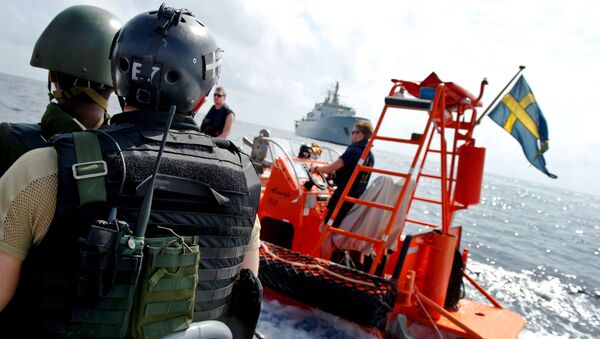According to the data, released upon request to Swedish newspaper Dagens Nyheter, Sweden's territory was violated 42 times over the past five years.
Contradicting recent speculation about alleged Russian incursions into Swedish territory, the statistics revealed that US forces had entered Sweden's border seven times, more than any other country.
Among the most high-profile American incursions was in June 2014, when a US Boeing RC-135 Rivet Joint jet entered Swedish airspace without permission while trying to evade a Russian jet, which had approached the US aircraft near Russia's borders.
Joint second on the list was Germany and Russia, who both breached Swedish territory six times over the same period, while Norway (five), Monaco (three) and the Netherlands, Poland and Qatar (two) all recorded multiple incursions into Swedish territory.
Figures Tell a Different Story
The figures, which were released as part of a pledge for greater transparency in Sweden's armed forces, paint a very different story to the media coverage of such incursions and close calls.
While Sweden's armed forces have accused Russia of acting aggressively in Europe, the release of the official statistics have shown that in fact the US, other NATO nations and allies of Sweden are collectively responsible for the overwhelming majority of territory breaches.
Back to the Cold War? (Close Military Encounters Between Russia and the West in 2014) http://t.co/KHZPyiaeih pic.twitter.com/71Z5QYWZKA
— Abel Riu (@abelicc) February 5, 2015
Russia has hit back at such allegations, pointing to the build up of NATO resources in eastern Europe as an aggressive tactic adding to tensions across the continent.
The increase in military operations and close encounters between Russia and NATO states since early 2014 was documented in the report 'Dangerous Brinkmanship' by London-based think tank, the European Leadership Network, which found that incidents between the two had jumped to Cold War levels.
The report criticized all parties involved in the incursions and called on leaders to take steps to improve dialogue and reduce tensions, warning that there was a "danger of losing control over events" which could ultimately result in conflict.



